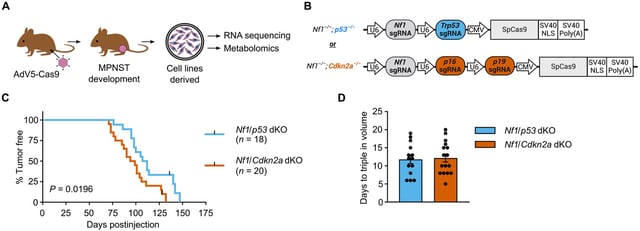Overview
- Peer-reviewed findings were published Aug. 13, 2025 in Science Advances by a University of Iowa–led team with collaborators at Washington University, MD Anderson, and the University of Toronto.
- Multiomic analyses mapped a reliance on the pentose phosphate pathway to supply antioxidant capacity that supports tumor survival under oxidative stress.
- Experimental inhibition of the pathway curtailed tumor growth and heightened response to chemotherapy in preclinical models.
- Researchers used somatic CRISPR tumorigenesis to create models that mirror patient driver mutations, enabling precise metabolic discovery.
- The results identify a preclinical target for a rare, fast-growing cancer that lacks targeted options for metastatic disease, with further validation and drug development still needed before clinical testing.
